When the conversation comes up about who is the best film composer of all time, it’s safe to say John Willaims gets brought up the most. With one hundred and sixty film score credits, five Oscar wins, and fifty-three nominations, John Williams is a composer who has carved out an unparalleled legacy for himself in his fifty-plus career to this day at ninety-one years old. With the newly released “Indiana Jones And The Dial Of Destiny” and growing talk that Williams could be coming to the end of his career in films coring, it’s time to look back at the man’s career and rank ten of his finest scores. It’s a complex task to look at the life of such a legend and shape his career with a list of only ten, especially given how many masterpieces he’s given us. But a challenge is always accepted, for in this list, we look at the scores that go above and beyond in terms of quality, not just within their own right but also how they fit within a film’s narrative space. So let’s put on those headphones, crank up the volume, and dive into the top ten greatest John Williams film scores…
10. “Minority Report” (2002)
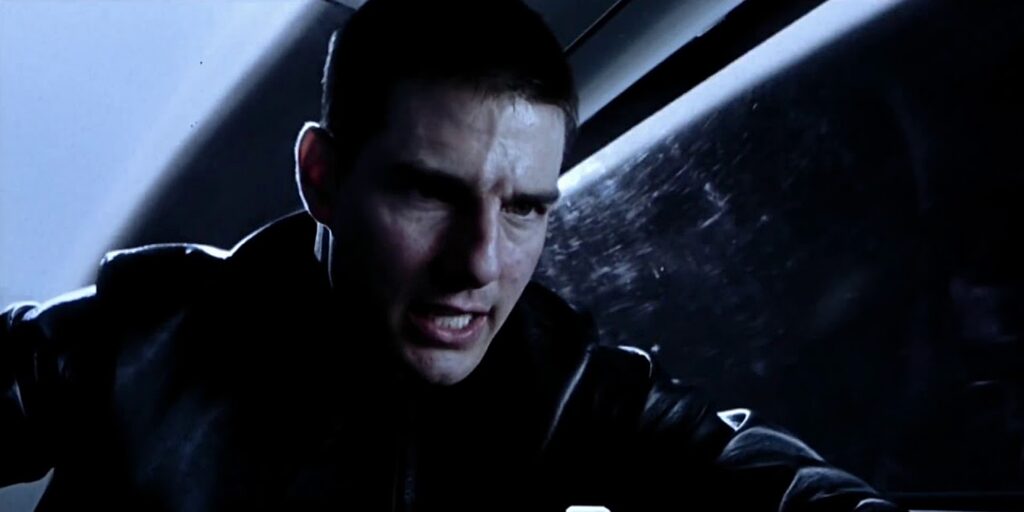
This cat-and-mouse sci-fi thriller takes us into the future of 2054 and shows a world where murder is prevented before it happens but at a cost. John William’s work brings a wide range of musical intrigue to the film. Due to its fugitive narrative, the score mostly kicks into high gear in its steadily fast-paced chase sequences. It expresses a sense of urgency with the protagonist, Chief John Andresnton’s (Tom Cruise) pursuit of clearing his name of a murder he hasn’t committed yet. Williams’ score is showcased heavily within tracks such as “Andresnon’s Great Escape” or “Spyders” in the apartment search sequence. The score doesn’t shy away from its slow feelings as Williams heightens the dark despair that’s brought to protagonist John Antrenton’s life after the tragedy of his missing son or brings things to a close in the film’s final act as with his usual classical style. “Minority Report” may be one of Williams’ more underrated pieces as it displays creative range and represents the only score on this list not to be one of his fifty-three Oscar nominations. But in all fairness, John Williams did receive a nomination that same year for the more prominent industry awards player, “Catch Me If You Can.”
9. “Home Alone” (1990)
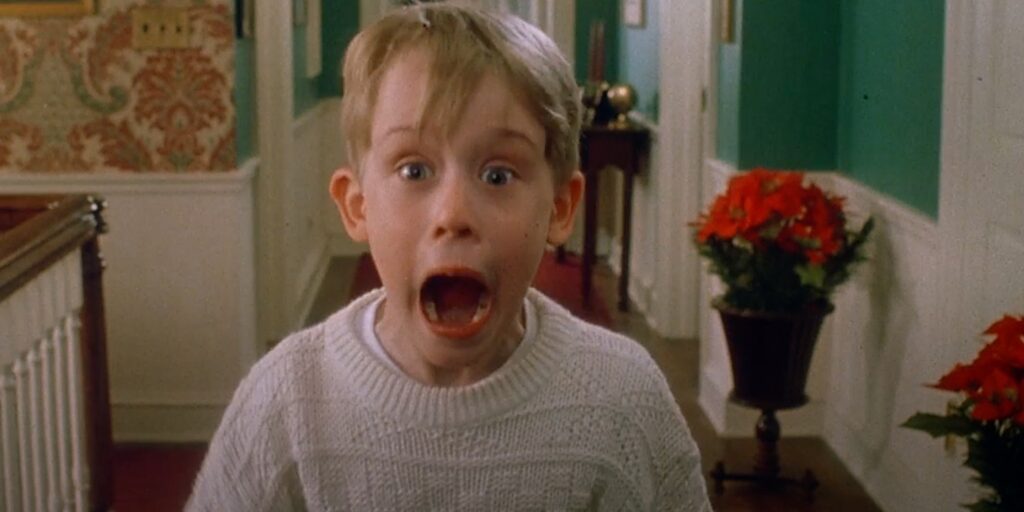
With this score, Williams shows he can deliver fantastic work with other filmmakers outside of his collaborations with Steven Spielberg. Willaims taps into his more comedic and cheerfully driven side with this memorable piece of work which perfectly compliments the story. The “Home Alone” score puts you into the feeling of a child’s perspective on the positives and negatives of being alone during the holidays. Multiple cues of rhythmic woodwind instruments and holiday-friendly percussions come together to capture a warm and lighthearted feeling, especially in the film’s main selling point, its slapstick humor. Moments such as the opening credits or the setting of the trap sequence are just the tip of the iceberg in this particularly expressive holiday event. Williams’s efforts were so strong that he received not one but two Oscar nominations in both Best Orginal Score and Best Orginal Song for “Somewhere In My Memories” in the same year.
8. “War Horse” (2011)
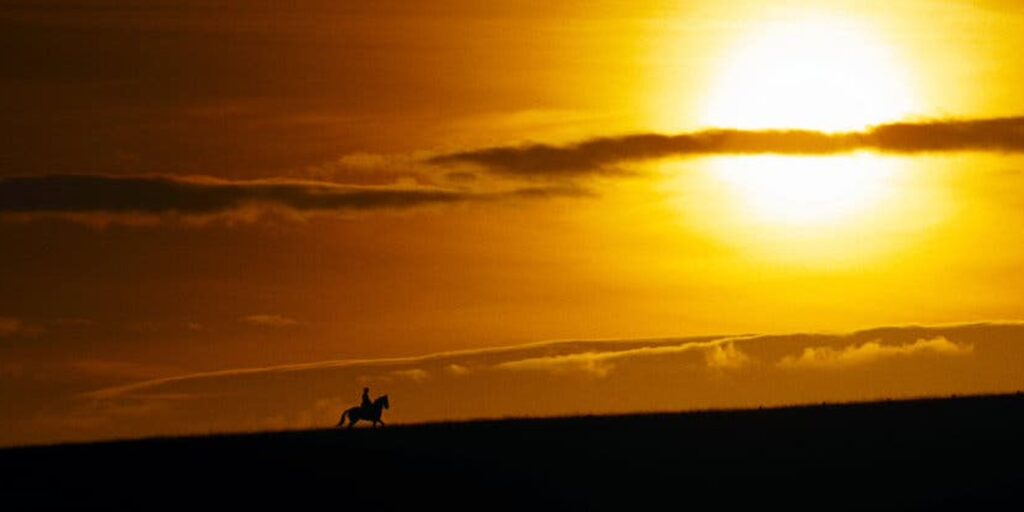
If there was any John Williams project that would be appropriate to appear on this list from recent years, it’s “War Horse.” Whether you’d consider “War Horse” to be one of the better efforts from Steven Spielberg as of late or not, it’s hard to deny the excellence of Williams’ score. The music is the film’s secret weapon. It makes one buy into the moving bond between Albert and his horse Joey in their pursuit of reuniting after being separated during the First World War. In the film’s final moments, Willaims work comes out the gate blaring with captivating sounds aiding the emotional payoff for the characters and their journies. Witnessing Albert and Joey return home from war with the film’s central theme as it swells us up in another triumphant Spielberg ending is a fine example of a veteran showing us, even in his later years, that he forever remains in his prime.
7. “Superman” (1978)
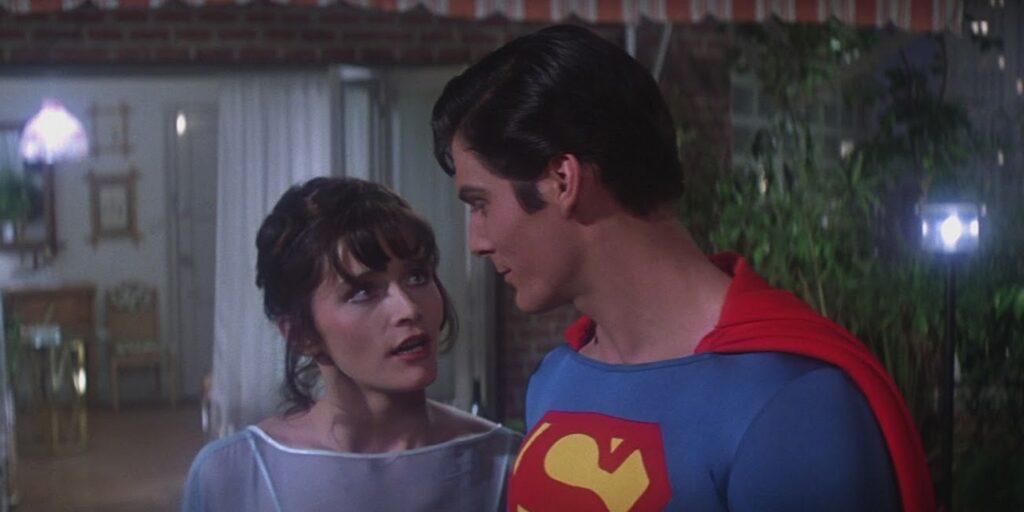
Before Danny Eflman’s “Batman” or Alan Silvestri’s “The Avengers” theme, there was the theme from “Superman.” In a world where multiple comic book adaptation scores can lean on the darker and more brooding side of their musical ambiance, “Superman’s” work is optimistically old fashion in all of the best ways. Comic book films were far from being the cultural phenomenon they have been in recent years. So John Williams had an enormous weight to carry that brought a whole new birth to the comic book genre. Yes, admittedly, the score is a product of its time with an “I’ll get your cat out of the tree” vibe, but that doesn’t stop it from being the beacon of light that all heroes should strive to be. Charming, heroic, and instrumentally vibrant, Williams’s work on this score brought relevance to the comic book genre and was a vital piece of the filmmaking that went into making 1978 movie audiences believe they could fly.
6. “Close Encounters Of The Third Kind” (1977)
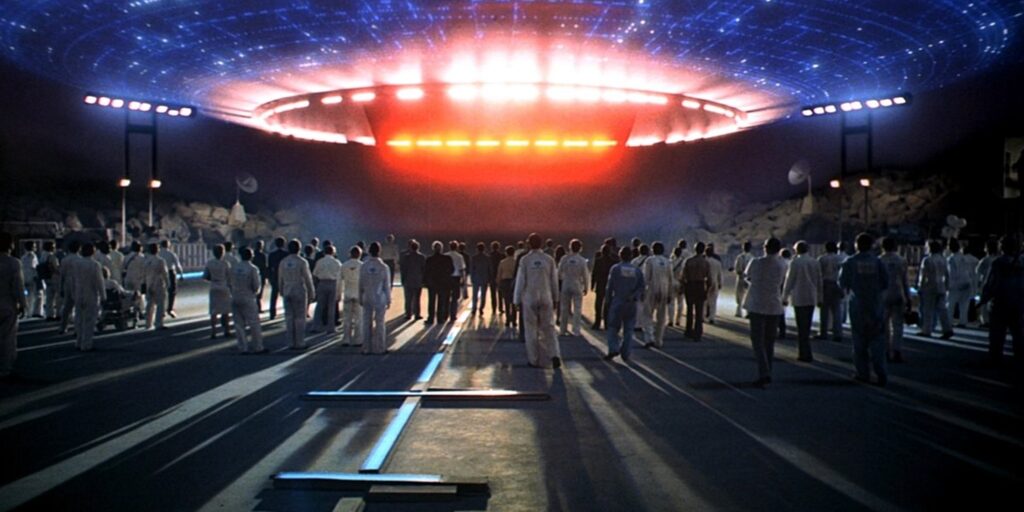
As complex as Williams’s music can be, sometimes the most mesmerizing scores are the ones that are simple and straightforward. With only five marvelous notes driving this score’s overall theme, “Close Encounters Of The Third Kind” is easily one of Williams’s most memorable pieces. Williams understood how to reach out of this world to the stars beyond to communicate the emotional importance of communication. It’s evident that “Close Encounters Of The Third Kind” is not your average alien story, with very approachable music that opens the human spirit enough where it pays homage to familiar Disney music such as “When You Wish Upon A Star.” The film stands as an epic showcase, giving us a look beyond our preconceived notions of other kinds, and is open to the joy of discovery and hope of peace within a genre mostly known for its conflict and destruction.
5. “E.T. The Extra-Terrestrial” (1982)
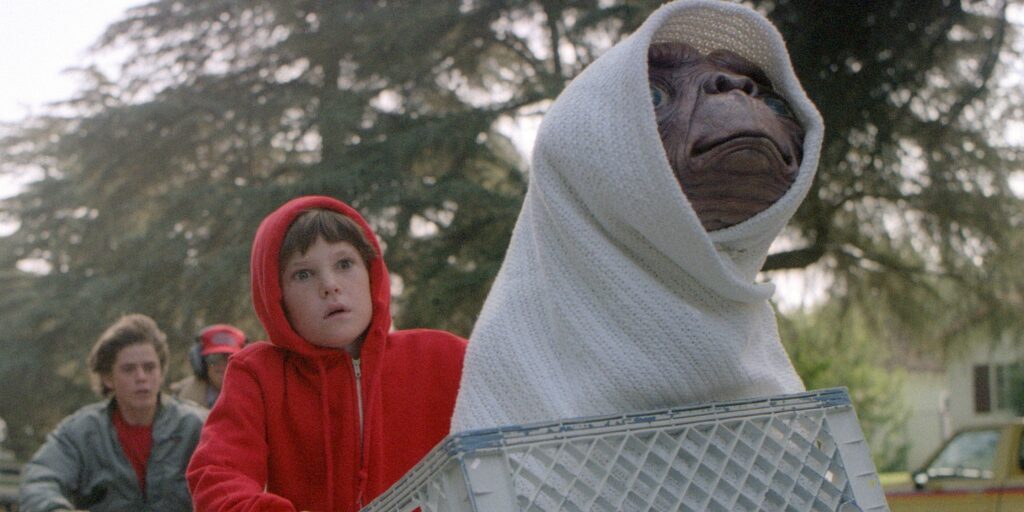
Another soundtrack from a film about Extra-Terrestrial/human contact, the score for “E.T. The Extra-Terrestrial” takes a more child-friendly approach and has gone on to be beloved as one of Williams’ all-time classic compositions. This approach to the score only makes sense, given the friendship between the main character Elliot and E.T. in his quest to help the alien return home. William’s music captures the heart and innocence of childhood, no matter the drama which may surround them with at-home life or the dangers of E.T.’s time on earth. The cinematic awe and wonder conveyed throughout the film are inspiring and transformative. The moment you see Elliot and E.T. fly into the air on the bike, Williams’ string instruments extract an inner child in all of us that we can take from this experience no matter how old we get. “E.T. The Extra-Terrestrial” is a masterful score that deserves a relistening with or without viewing the film.
4. “Jaws” (1975)
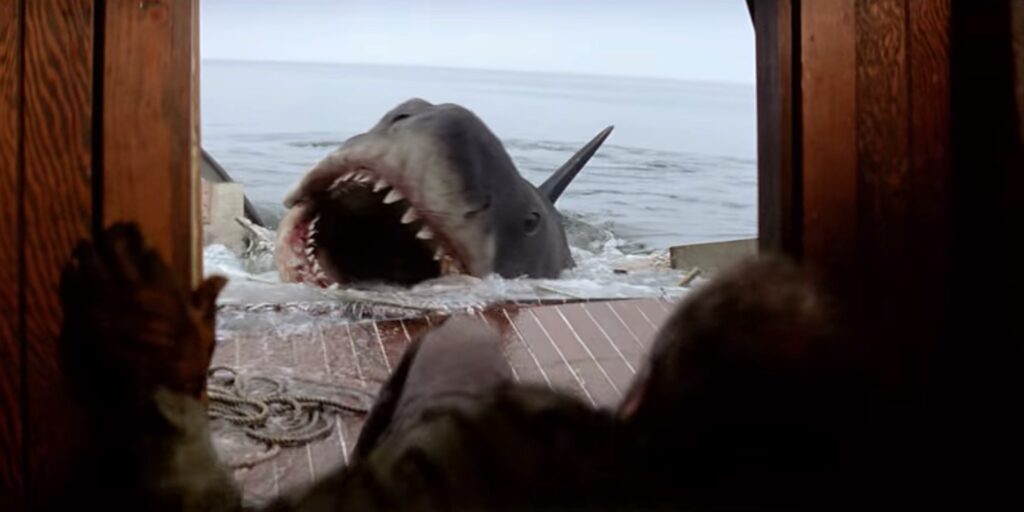
If you thought John Williams was direct with his fives note theme for “Close Encounters Of The Third Kind,” he only condensed this a few years earlier and created one of the most influential movie themes with this two-note-driven piece. The catchy tuba mixed theme of “Jaws” sets the tone for one of cinematic history’s greatest villains and overall movie experiences. The score is, however, more than its memorable theme. Notable scenes, such as the thrilling climax, where the music elevates the horrific stakes that our three heroes set out on their journey to take down the murderous shark, have stood the test of time. The film’s iconic music is something even those who have never seen or heard of “Jaws” are familiar with, as it’s been paid homage to in other works and made its way into pop culture in what is regarded today as the first-ever summer blockbuster.
3. “Schindler’s List” (1993)
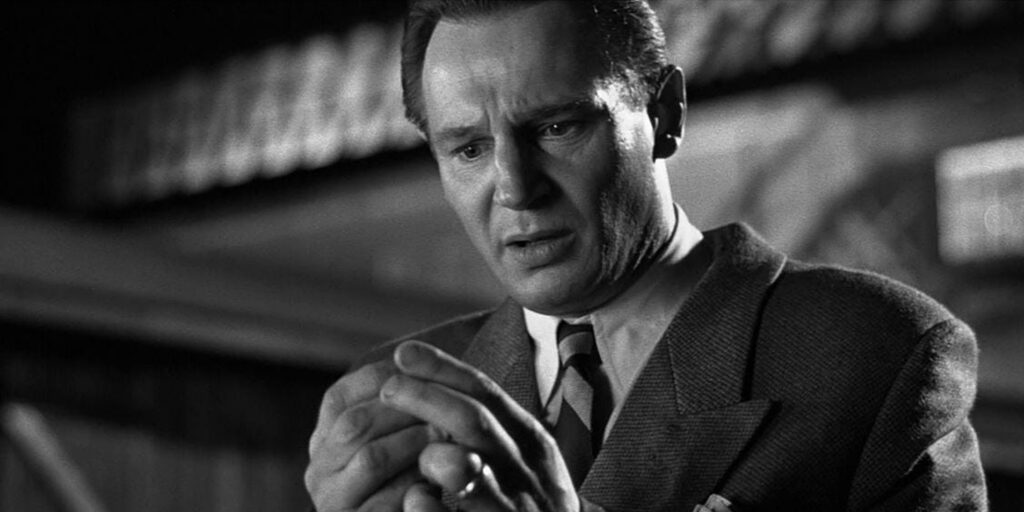
Much like his dual work in 2022 which produced “Minority Report” and “Catch Me If You Can,” John Williams hit a new career peak with his cinematic offerings of 1993’s “Jurassic Park” and our next entry on this list. Like his work on “Jurassic Park,” Williams is mainly known for his grand-scale scores, which convey a sense of cinematic wonder. However, in 1993, he constructed his most somber and mature work, which can still bring tremendous sadness to those who hear it. Based on the novel Schindler’s Ark, “Schindler’s List” is a story that depicts real-life Oskar Schindler’s (a never been better Liam Neeson) heroic efforts during the horrors of the Holocaust. This project brought the prestigious composer back again to collaborate with his longtime friend Steven Speilberg for his most personal and challenging film at that point in his career. The music extracts a sorrowful tone through its uses of delicate violin instrumentation, expertly performed by renowned violinist Itzhak Perlman. Perlman’s skills were not held back as they brought justice to those whose lives were tragically taken away from them and can be felt most notably in the track “Theme From Schindler’s List.” Even 30 years after its release, the Oscar-winning “Schindler’s List” continues to have massive power within its music. It proved to be another crowning achievement milestone for Williams as he would win his fifth and, to this date, last Academy Award.
2. “Raiders Of The Lost Ark” (1981)
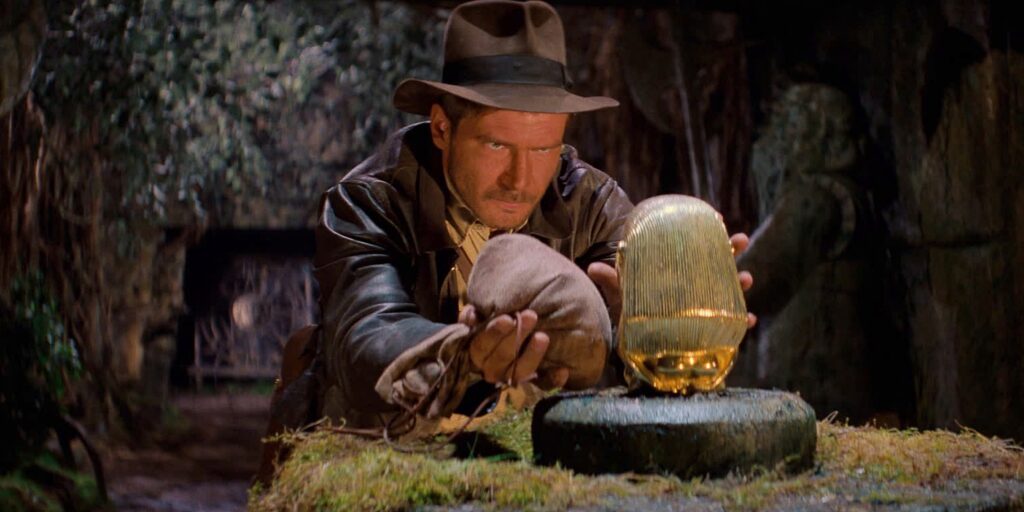
The Indiana Jones character is defined by many singular elements: his fedora hat, lasso whip, and even his fear of snakes. There’s also one other thing that will always come to mind: the “Raider’s March” track (much to the sarcastic disdain of Harrison Ford). But this track is more than just another rousing example of Williams’ musical talents. It’s a call to adventure, an adventure with an iconic movie character who audiences have been on a journey with for over four decades. The score shoots from beyond the hip, from the opening music in the jungle, introducing us to the brave, heroic character and the lovely “Marion’s Theme,” hinting at a more intimate side to Indy with his one true love, Marion Ravenwood. “Raiders Of The Lost Ark’s” score became the staple for what an adventure film’s score should sound like. Williams continues to add new flavor to this nostalgic score while keeping its spirit intact with each “Indiana Jones” sequel, including this year with the latest release, “Indiana Jones And The Dial Of Destiny.” “Raiders Of The Lost Ark’s” score is a crowning jewel in a long and prosperous career that sustains its strength in the hearts of many with its outstanding composition. However, it says much about Williams that this isn’t even the number-one pick…
1. “Star Wars: A New Hope” (1977)
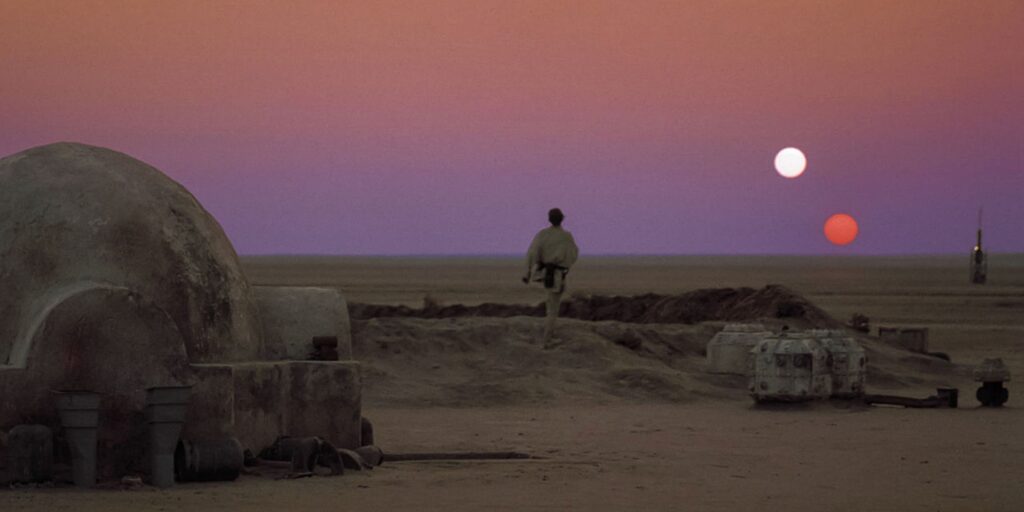
John Williams put himself in a position of demand and gave us the most recognizable score known in cinematic history. All the way up to his final work on the franchise with “Star Wars: The Rise Of Skywalker,” Williams has gone on to create outstanding pieces for each film in the franchise, such as the “Imperial March” from “Empire Strikes Back,” “Dual Of Fates” from “The Phantom Menace’, and “Rey’s Theme” from “The Force Awakens.” But it all began with 1977’s “A New Hope.” It’s the kind of score any film composer would love to have one of in their careers, but on top of all the previous works mentioned in this list, for Williams, it stands as one of many. His longtime partnership with the London Symphony orchestra gave us a soundscape that was, at the time, so original and in sync with the world and characters Geroge Lucus had created; it did what all film scores should do: transport us. Princess Leia’s theme shines bright among the many classic tracks in its dreamy use of horns that crescendos into something groundbreaking, in what fits one of cinema’s most potent female heroines of all time. Whether you are a fan of the “Star Wars” franchise or not, it’s hard to deny the cultural impact it and its music has had for over forty years. This substantial and impeccable work helped change the landscape of cinema forever and stands tall today as not only the best work of Williams’ career or one of the best film scores of all time but one of the greatest pieces of music ever written for any medium.
What do you think of this list? What is your favorite John Williams score? Have you seen “Indiana Jones And The Dial Of Destiny” yet? If so, what did you think of the score? Please let us know your thoughts in the comments section below or on our Twitter account.


